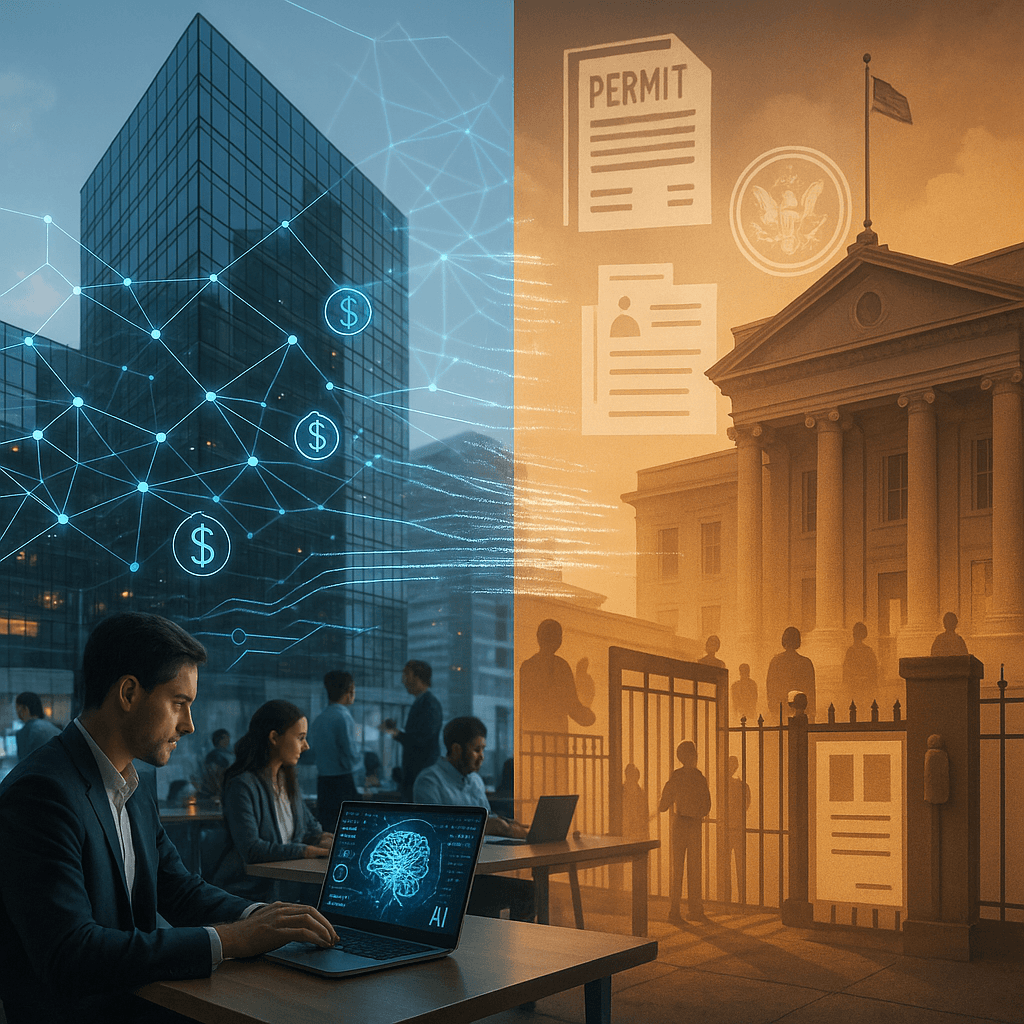The first government shutdown in seven years is creating an existential crisis for startups waiting on permits and visas, while AI companies like OpenAI scramble to turn synthetic content into sustainable revenue. TechCrunch's latest Equity episode reveals how uncertainty is hitting the startup ecosystem in unexpected ways, just as the AI industry faces its own monetization reality check.
The timing couldn't be worse for America's startup ecosystem. Just as OpenAI rolls out its ambitious plan to monetize AI-generated content, the first government shutdown in seven years is quietly strangling the pipeline of new ventures waiting for regulatory approvals, visa processing, and permits that can make or break a company's trajectory.
On the latest episode of TechCrunch's Equity podcast, hosts Kirsten Korosec, Anthony Ha, and Max Zeff dive deep into this collision of political dysfunction and tech ambition. The discussion reveals how uncertainty ripples through Silicon Valley in ways most people don't see, while AI giants face their own existential questions about sustainable business models.
OpenAI's launch of the Sora app represents the industry's latest attempt to crack the monetization code. The TikTok-style feed of AI-generated content feels like a desperate attempt to create consumer demand for synthetic videos, but early reactions suggest the market might not be ready to pay for an endless stream of algorithmic content. The app is already flooded with terrifying Sam Altman deepfakes, raising immediate questions about content moderation at scale.
The monetization challenge extends beyond consumer apps. Even AI-generated actress Tilly Norwood is proving that synthetic performers can cause real industry drama, as Hollywood grapples with the implications of artificial talent that never demands a trailer or threatens to strike.
Meanwhile, Periodic Labs just closed a staggering $300 million seed round from Andreessen Horowitz, Jeff Bezos, and Nvidia to build AI scientists capable of discovering new physics. The ambitious vision of automating scientific discovery represents the kind of moonshot thinking that typically thrives in stable regulatory environments - exactly what the current shutdown threatens to undermine.
The government's growing role as an equity investor adds another layer of complexity. Washington's stakes in companies like Lithium Americas, MP Materials, and Intel mark a fundamental shift in how the federal government engages with strategic industries. This industrial policy approach could reshape competitive dynamics, but it also raises uncomfortable questions about what happens when your biggest shareholder is the same entity that controls your regulatory fate.












